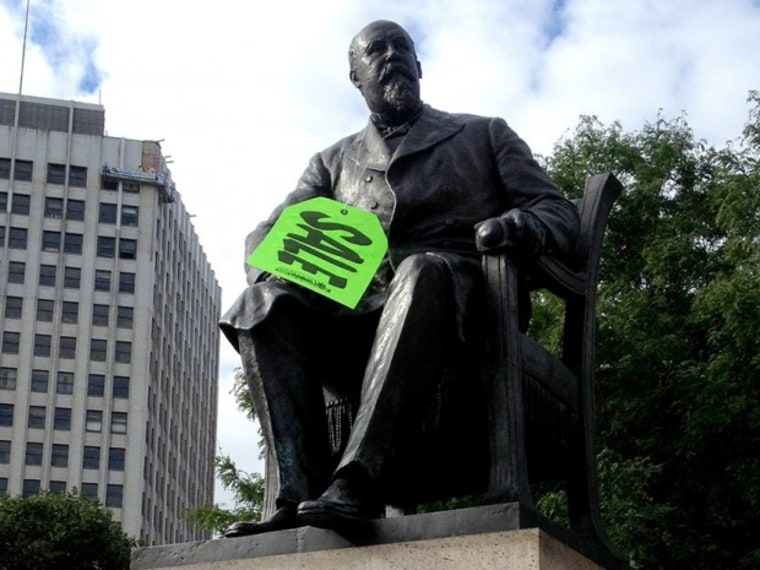Bright-colored “sale” tags have been popping up around bankrupt Detroit, claiming everything from public buildings and statues to light poles (only “$29 or two for $50”) is on the market. While it may seem plausible, given the $18 billion debt the cash-strapped city racked up over the years, city officials are not behind the “for sale” stunt. Two local artists, Rick Manore and Jerry Vile, claimed responsibility for city-wide fake blowout, according to NBC affiliate WDIV. “I guess everybody got the joke,” Manore told WDIV. “It’s different than tagging, spray-painting – it’s not destructive. But the point that gets across is still as important.” City workers have been removing the price tags since their Wednesday debut. An ad in The Metro Times also featured more “sale” items, like parking meters, manhole covers and penguins from the zoo. “When things are really painful, it goes down a lot easier with humor,” said Manore. And the city’s financial woes are no laughing matter.
Under the leadership of Detroit’s state-appointed emergency manager Kevyn Orr, the city has been taking stock of its assets after filing for Chapter 9 bankruptcy protection in July. Ironically, the city hired Christie’s auction house to appraise the value of statues and other artworks inside the Detroit Institute of Arts, fueling fears the cash-strapped city would, in fact, sell its masterpieces to help pay off long-waiting creditors--a never been seen nightmare in the art community. The city doesn’t currently have any plans to get rid of the collection, which they technically own, but they haven’t taken the idea off the table either. Michigan Gov. Rick Snyder described the bankruptcy process as a painful, but necessary step towards rebuilding a thriving city once again. “The fiscal realities confronting Detroit have been ignored for too long,” Snyder said in a statement last month. ”This is a difficult step, but the only viable option to address a problem that has been six decades in the making.”
